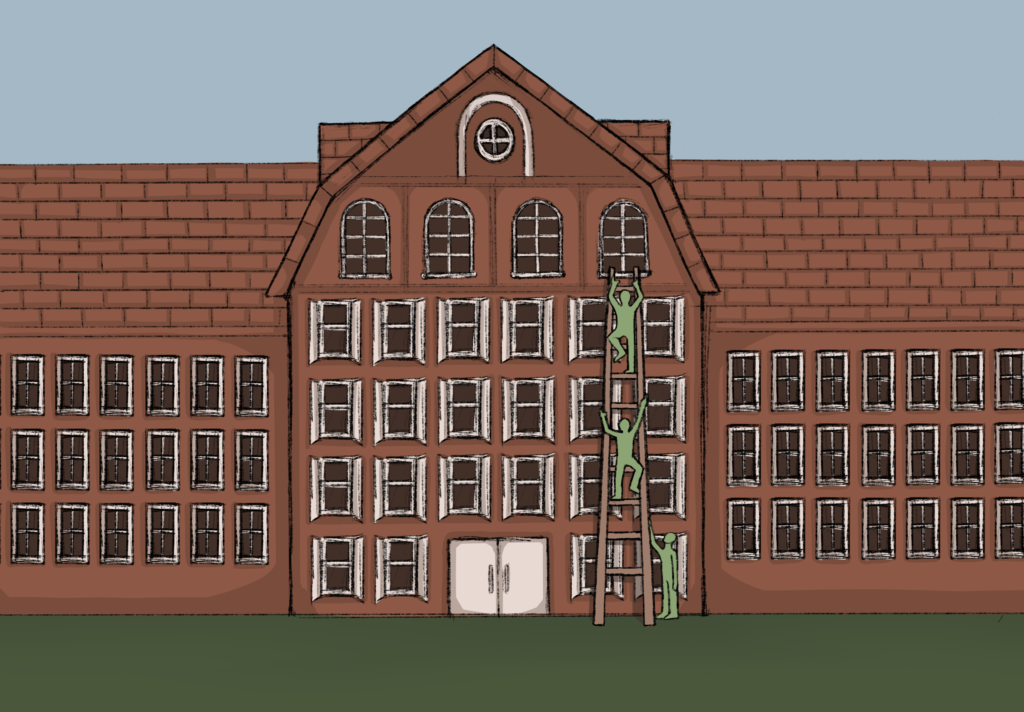Diversity Day — a time for a part of the student body to reflect on what it means to live in a community like Choate’s, and a time for the other part to just be happy that they don’t have to go to classes. However, it would be a mistake for any student to think of this day as a “day off.” In fact, the day’s conversations should be just as mentally straining as those that arise in any typical class. Diversity Day is necessary for this School, for it is crucial to understand the backgrounds of students with different skin tones, sexualities, religious ideologies, and other identities that Choate students may have. The open conversations provide a platform and a voice for all students to be able to share their personal stories and intently listen to what others have to say.
There is no time as fitting as the week of Inauguration Day to hold discussions on white privilege, political correctness, student romantic relationships, pressures to conform, “positive” stereotypes, and so on. Given the unusual (for lack of a better word) whirlwind of events that have transpired in the past few months, our nation has become more and more divided each and every day, intensifying an atmosphere of social turmoil. It is our job as students, who have the privilege to go to a boarding school represented by 39 states and 42 countries, to embrace our heterogeneity and take advantage of a full day of in-depth conversations on complex topics that can be approached from several different viewpoints.
Thanks to enthusiastic organizers, Diversity Day sets the table for a plethora of different discussions throughout the day, providing all students the resources to learn a lot from their peers. That being said, when looking at the bigger picture, each student is only participating in three conversations throughout the day. Three 45-minute periods, and that is it.
Diversity Day can only be deemed a success if the conversations do not come to a close. Remember when Slut: The Play and Now That We’re Men took the main stage last September? The reactions and conversations could be heard in classrooms, the dining hall, music rehearsals, and even athletic fields. They also didn’t die down the day after the plays were put up: they lasted for at least two weeks. Those additional discussions in informal environments are what will really make Diversity Day an overall success, as it is easy to sit through the day staring at a blank wall and not taking in any of the conversation.
My first conversation of the day was on the topic of white privilege. I was one of two white people in the discussion, and the rest of the group consisted of students of Asian and African descent. Needless to say, the conversation was incredibly enlightening, and I really enjoyed being able to hear the thoughts of those who do not share my pigment. We talked in depth about how the main problem of white privilege is the lack of acknowledgement of the privilege that white people inherently possess. We went even further and came to the conclusion that a white person speaking at a special program about their acknowledgement of having privilege would be more intriguing to the audience than a person of color speaking about their feeling oppressed. All in all, those 40 minutes were an extraordinarily eye-opening experience, and I would not have learned so much had I not been wholly engaged in the experience.
As touched upon in one of my Diversity Day discussions, many students who oppose the idea of Diversity Day believe that students at Choate are set in their ways and unwilling to listen to the opposition. If that’s the case, then why bother discussing anything, let alone topics as thought-provoking as the ones considered on Diversity Day? Although Tiq Milan, the keynote speaker of the day, stated that people who are stuck in their own ways are not worth discussing with, it’s hard to determine who is “stubborn” when many of the students in your conversations are strangers. It’s at least worth a shot to try and inform others.
At the end of the day, there is nothing negative about taking part in discussions that could open our eyes to the injustice that is still well and alive in 2017. Feel free to not take part in any of the dialogue on Diversity Day or in any of the dinner table conversations that may ensue — just know that these glaring issues being placed at the forefront on Diversity Day are inescapable, and if we do not make an effort to bring all of our opinions to the table, our campus will turn into one of those partitioned communities we so often read about while scrolling through social media.




